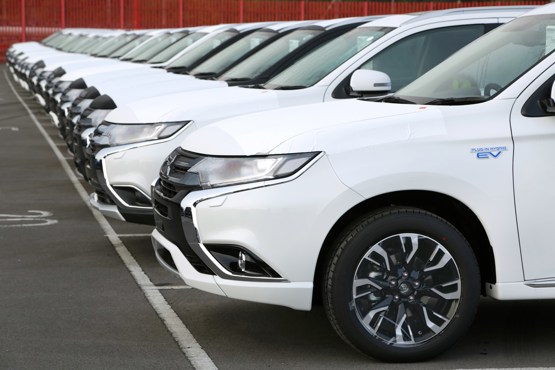The transition to electric vehicles (EVs) – driven by strategic shifts among legacy manufacturers and competition from new entrants – could lead to reduced variety in vehicle makes and models, especially if manufacturers scale back their UK presence.
This concern is highlighted in Cox Automotive’s latest Insight Quarterly (IQ) report, which also warns of potential challenges with vehicle availability as original equipment manufacturers (OEMs) focus on aligning supply with actual demand.
Philip Nothard, Cox Automotive’s insight director, explained: “The evolving landscape is prompting many OEMs to reassess the agency sales model, often delaying its full implementation as they seek greater financial transparency.
“With the shift from traditional ‘push’ to demand-driven ‘pull’ sales, consumers may experience reduced vehicle availability, reflecting OEMs’ focus on aligning supply with actual demand.”
Cox Automotive forecasts nearly two million new car registrations in 2025 – a modest 3.6% rise compared to 2024. However, this figure remains 11.6% below the pre-pandemic average from 2001-2019, reflecting ongoing challenges within the sector.
The UK’s dependency on global manufacturers is significant, with imports accounting for 90% of new car registrations. In 2023, a record 1.72 million imported units – an 18.6% rise from 2022 – highlighted this reliance. This trend is expected to continue into 2025 and beyond, underlining how decisions by global OEMs directly impact vehicle availability for UK consumers and fleet operators.
“Although global vehicle production remains high, a growing misalignment between production rates and the UK’s ambitious ZEV targets raises questions about OEMs’ commitment to meeting UK mandates, especially with rising pressure to increase EV sales,” Nothard said, adding that the industry faces tough trade-offs as it reduces internal combustion engine (ICE) production to meet ZEV goals, making 2025 and beyond a period of significant market transformation.
Under the Zero Emission Vehicle (ZEV) Mandate, which became law in January, ZEVs must comprise 22% of OEMs’ new car registrations and 10% of new van sales in 2024- or manufacturers face fines of £15,000 for each vehicle sold outside the target.
These thresholds will increase annually, reaching 80% for cars and 70% for vans by 2030. Yet, compliance options offer flexibility to manage risks tied to product investment cycles and uncertain sales volumes.
This week, government ministers are meeting with manufacturers operating UK factories, but indications suggest they are unlikely to relax targets despite mounting industry pressure.
Cox Automotive forecasts a significant market shift in 2027 as the transition away from internal combustion engines accelerates. Diesel and mild hybrid electric vehicle (MHEV) registrations are expected to decline sharply from 6% in 2024 to 3% by 2027 – a 56.8% drop.
Petrol/MHEV registrations are also projected to fall from 51% to 35%, while battery electric vehicle (BEV) registrations are set to grow from 21% to 34%, marking a remarkable 165.4% increase. Plug-in hybrid electric vehicle (PHEV) and hybrid electric vehicle (HEV) registrations are expected to rise from 22% to 28%.
Nothard concluded: “By 2027, we expect to see a pivotal shift in the UK automotive landscape as the industry moves decisively away from internal combustion engines.
“With diesel and petrol vehicle shares set to decline sharply, and battery electric vehicles projected to make up over a third of new registrations, the market is clearly accelerating toward an electrified future. These changes underscore the need for adaptable strategies as both manufacturers and consumers embrace a new era in mobility.”

